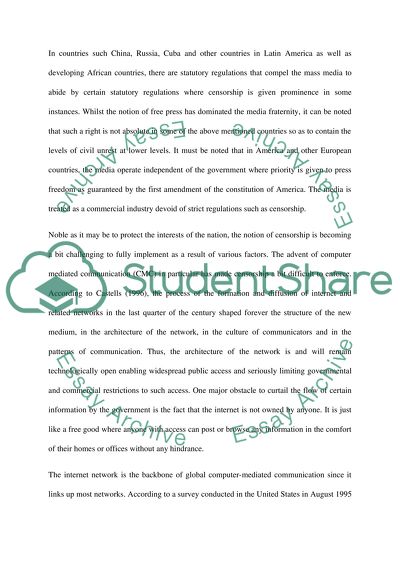Cite this document
(Why Is Censorship Ineffective Essay Example | Topics and Well Written Essays - 1750 words, n.d.)
Why Is Censorship Ineffective Essay Example | Topics and Well Written Essays - 1750 words. https://studentshare.org/media/1566265-why-is-censorship-ineffective
Why Is Censorship Ineffective Essay Example | Topics and Well Written Essays - 1750 words. https://studentshare.org/media/1566265-why-is-censorship-ineffective
(Why Is Censorship Ineffective Essay Example | Topics and Well Written Essays - 1750 Words)
Why Is Censorship Ineffective Essay Example | Topics and Well Written Essays - 1750 Words. https://studentshare.org/media/1566265-why-is-censorship-ineffective.
Why Is Censorship Ineffective Essay Example | Topics and Well Written Essays - 1750 Words. https://studentshare.org/media/1566265-why-is-censorship-ineffective.
“Why Is Censorship Ineffective Essay Example | Topics and Well Written Essays - 1750 Words”. https://studentshare.org/media/1566265-why-is-censorship-ineffective.


